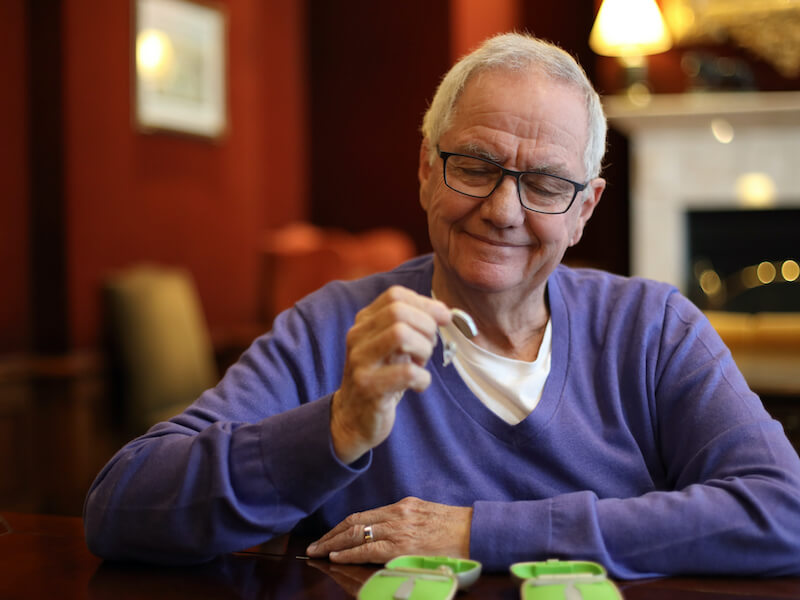
You’ve been looking forward to this day for a long time. You received your new hearing aids. You’re finally going to be able to get back into the groove of your social life again. Now, you won’t be missing parts of conversations or going through uncomfortable transitions. But your hearing aids just don’t seem quite right.
The reason for this is that it will usually take some time before you adjust to your new hearing aids. Sometimes, this transition can be frustrating. You were so excited about enjoying your hearing again and it feels like it’s taking so long.
Luckily, there are a few tips that can help quicken the transition process. Pretty soon, with a little practice, you will be paying attention to what you’re hearing instead of your hearing aids.
Tips that help you start Slowly
Your brain will take a little time to get accustomed to hearing certain sounds again regardless of how sophisticated your hearing aids are. Here are a few ways you can intentionally give yourself time to adjust and start things off slowly:
- Start by using your hearing aids at home only: You’ll be less likely to encounter noise pollution at home and you will be able to have a greater degree of control over the sounds you’re hearing. This will help you focus on individual voices.
- Focus on one-on-one conversations first: If you wear your hearing aids while eating at a crowded restaurant on your first day you get them, you may be disappointed, not because the hearing aids are doing anything wrong. It’s just that it’s difficult for your ear and brain to deal with focusing on all those different voices. By starting out with one-on-one conversations you will make the transition easier and also get a little additional practice.
- Use your hearing aids for a short duration: A few hours at a time is the most you should wear your hearing aids when you first get started. Your hearing aids will most likely feel a little weird in your ears for a while so starting slowly is okay. As your hearing aids get more comfortable, you can use them for longer periods of time.
Get additional practice with these tips
As with any other skill (and hearing is a skill, among other things), there are a few activities that can help you practice with your hearing aids. You could even have a little fun!
- Do some listening exercise: That’s right: Sit somewhere a little quiet and take in the sounds around you. Begin by focusing on the sound of wind blowing through the trees or birds singing or nearby running water.
- Read along with the printed book while you listen to the audiobook.: This is a very similar exercise (and allows you to have some fun reading while you’re at it). Your brain will learn to make associations between sounds and words by employing this read along approach.
- Use closed-captions when you watch TV: It’s easy: Turn the TV on, put your hearing aids in, and enjoy. As you read the dialog you’ll also be hearing the actors talk, and your brain will begin to remember what all these words sound like. This can give you some practice hearing and adjusting to speech.
Tips to keep your hearing health strong
Keeping your ears as healthy as you can, after all, is one of the primary purposes of hearing aids. And there are some tips you can do to keep your ears happy as you get accustomed to using your new hearing aid:
- Be certain to note and report any pain: Your hearing aids shouldn’t hurt. So it’s important to let us know about any issues with fit or any pain right away.
- Keep visiting us: You may not think you need to get hearing evaluations anymore after you get your hearing aids. Nothing could be further from the truth. We can help make adjustments to your hearing aids, keep the fit comfortable, and continue to check in on your hearing. These follow up visits are very important.
Be patient, and build up to full-time hearing aids
Working your way up to using your hearing aids full time is the objective here. A slow and progressive approach works quite often, but everyone’s unique. Learning the best ways to get comfortable with your new hearing aids is something we can help you with.
Implementing these tips (and tips like them) can help make sure that you enjoy having your hearing aids and that you keep using them because they continue to enhance your life.
